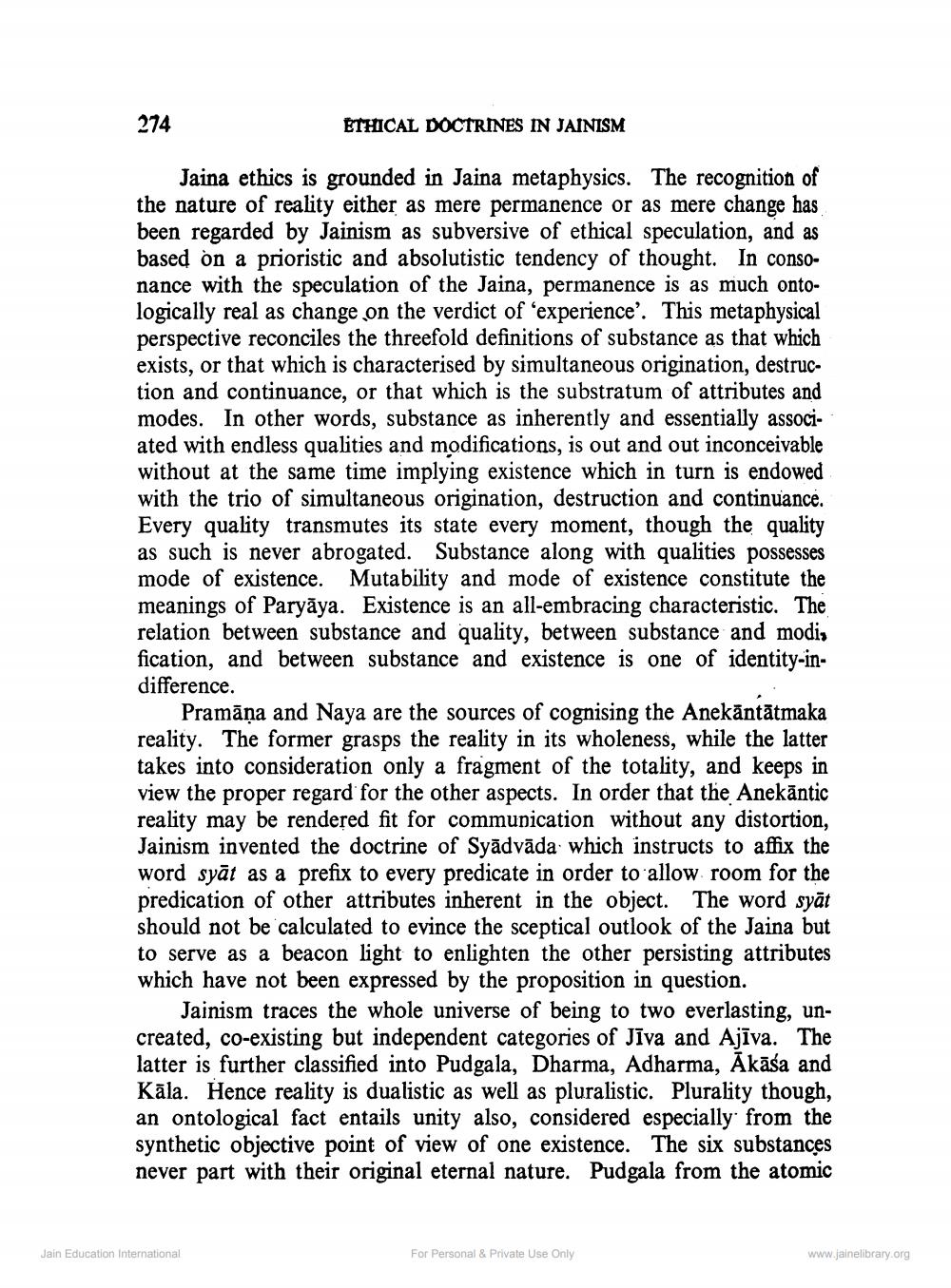________________
274
ETHICAL DOCTRINES IN JAINISM
Jaina ethics is grounded in Jaina metaphysics. The recognition of the nature of reality either as mere permanence or as mere change has been regarded by Jainism as subversive of ethical speculation, and as based on a prioristic and absolutistic tendency of thought. In consonance with the speculation of the Jaina, permanence is as much ontologically real as change on the verdict of experience'. This metaphysical perspective reconciles the threefold definitions of substance as that which exists, or that which is characterised by simultaneous origination, destruction and continuance, or that which is the substratum of attributes and modes. In other words, substance as inherently and essentially associated with endless qualities and modifications, is out and out inconceivable without at the same time implying existence which in turn is endowed with the trio of simultaneous origination, destruction and continuance. Every quality transmutes its state every moment, though the quality as such is never abrogated. Substance along with qualities possesses mode of existence. Mutability and mode of existence constitute the meanings of Paryāya. Existence is an all-embracing characteristic. The relation between substance and quality, between substance and modis fication, and between substance and existence is one of identity-indifference.
Pramāna and Naya are the sources of cognising the Anekāntātmaka reality. The former grasps the reality in its wholeness, while the latter takes into consideration only a fragment of the totality, and keeps in view the proper regard for the other aspects. In order that the Anekāntic reality may be rendered fit for communication without any distortion, Jainism invented the doctrine of Syādvāda which instructs to affix the word syāt as a prefix to every predicate in order to allow room for the predication of other attributes inherent in the object. The word syāt should not be calculated to evince the sceptical outlook of the Jaina but to serve as a beacon light to enlighten the other persisting attributes which have not been expressed by the proposition in question.
Jainism traces the whole universe of being to two everlasting, uncreated, co-existing but independent categories of Jīva and Ajīva. The latter is further classified into Pudgala, Dharma, Adharma, Akāśa and Kāla. Hence reality is dualistic as well as pluralistic. Plurality though, an ontological fact entails unity also, considered especially from the synthetic objective point of view of one existence. The six substances never part with their original eternal nature. Pudgala from the atomic
Jain Education International
For Personal & Private Use Only
www.jainelibrary.org




